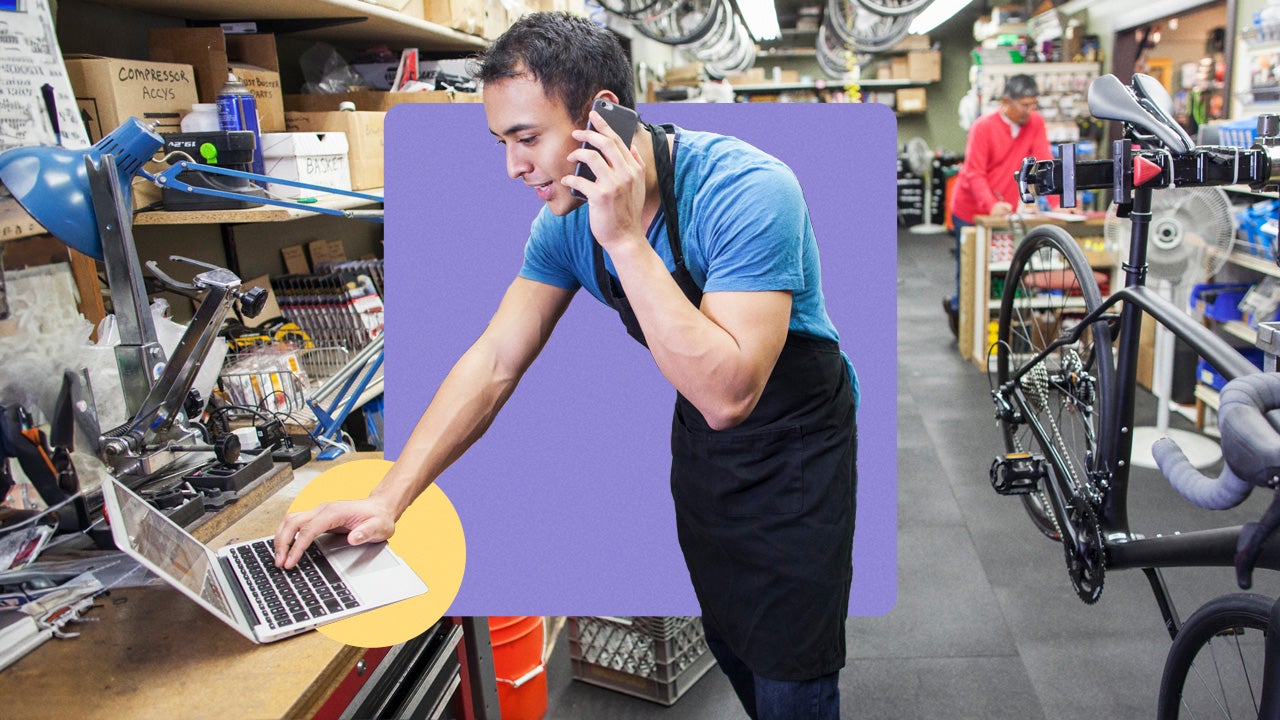What are no-credit-check loans, and why should you avoid them?

Key takeaways
- No-credit-check loans cater to borrowers with poor credit or limited credit history.
- These loans often come with sky-high interest rates, sometimes exceeding 100 percent APR.
- These loans should be approached with great caution and as a last-resort funding option.
Obtaining a loan when you have bad credit can be challenging, as most lenders require good credit or better. But if your credit score needs work, there are still borrowing options available, including no-credit-check loans.
Unfortunately, these loans have some significant downsides, including extremely high interest and origination fees. Before proceeding, be sure you understand all the costs associated with this type of lending.
What is a no-credit-check loan?
As the name indicates, a no-credit-check loan doesn’t require a hard credit check or a review of your credit history. Instead, the lender makes its decision based on other considerations, such as your employment status, income or bank account history. You may even borrow based on the value of your collateral, if you apply for a secured loan.
Since borrowers with bad credit are considered a higher risk, lenders charge significantly higher interest rates and additional fees for these types of loans. The average interest rate on personal loans is close to 12.5 percent, but if you have bad credit, you can expect rates closer to 36 percent — if you qualify. No-credit-check loans, on the other hand, may have annual percentage rates (APRs) in the triple digits.
How no-credit-check loans work
Like most forms of credit, you’ll repay the loan balance, plus interest, over a predetermined repayment term.
But unlike loans that require a credit check, no-credit-check loans may have significantly shorter repayment terms (like two weeks, versus multiple years), and your rates will be high. Your responsible repayment may not be reported to the three major credit bureaus — Equifax, Experian and TransUnion — so a no-credit-check loan might not help you build credit.
If you default on the loan, and it’s sold to a debt collection company, the delinquency may be reported to credit bureaus, causing additional harm to your credit.
Why no-credit-check loans are a bad idea
Simply put, no-credit-check loans can lead to quite a few negative financial consequences.
While no-credit-check loans may seem like a great option, some of them — like payday and car title loans — should be approached with caution. Exorbitant interest rates lead to high payments, which can steer you into a relentless cycle of debt, and can negatively impact your credit. Some lenders also tack on additional fees that make it even harder to get your finances in order.
Pros and cons of no-credit-check loans
Before signing on for a no-credit-check loan, be sure you fully understand the benefits and drawbacks of this type of borrowing.

Pros
- Available even if you have bad or no credit
- Easy application process
- Cash provided quickly

Cons
- Higher interest rates and fees than other loan types
- Create a debt cycle that can be hard to escape
- Potential predatory lenders
Types of no-credit-check loans
There are different types of loans that don’t require borrowers to go through a credit check to get approved for the funds. Consider why you need the funds and whether there are alternative options that could be more beneficial to your finances.
How to shop for no-credit-check loans
No-credit-check loans are offered by a variety of lenders, some of which may be less reputable than others, making it important to do your research:
- Review the interest rates charged by each lender. Even if you get stuck with a high APR, comparing lenders will help you identify the lowest, most competitive rates you qualify for.
- Understand all fees associated with borrowing. With payday loans, for instance, the lender may charge a flat fee per $100 borrowed. This can result in a high equivalent APR, even if there is no interest.
- Read online reviews. Before deciding on a lender, check each lender using websites like the Better Business Bureau (BBB) and Trustpilot to help you steer clear of any scams or companies that have patterns of poor customer experiences.
- Know your state laws. Before signing a loan agreement, make sure that the loan you’re considering is actually legal — that the lender is following the limits on fees, interest and loan terms.
If you’re asked to provide money upfront in exchange for a loan, move on. This is a sign of a loan scam. Additionally, if a lender won’t give information on all fees associated with the loan, consider it a warning sign that the lender may not be honest.
Safer alternatives to no-credit-check loans
There are several alternatives to no-credit-check loans that can give you the funds you need even if you have bad credit or no credit.
Bad credit loan lenders
Some lenders specialize in lending to borrowers with poor credit. If you go with a bad credit loan lender, you may be able to secure a lower interest rate than you would with a no-credit-check loan. To get the best bad credit loan rates, shop with several lenders before applying.
Credit unions
Compared to banks, personal loans from credit unions often have lenient requirements. As long as you’re a member, you may be able to get approved for a loan from a credit union even with bad credit. Credit unions will likely look at your entire financial picture in addition to your credit. Federal credit unions are required to cap interest rates on most loans at 18 percent.
Payday alternative loans
Payday alternative loans (PALs) are small, short-term loans offered by some federal credit unions. Loan amounts typically range from $200 to $2,000. They’re generally more affordable than traditional payday loans and repayment terms range from one to 12 months. Rates are capped at 28 percent.
If you apply for a PAL, a credit union will require proof of your income to ensure you can repay the loan.
Secured loans
Secured loans are protected by collateral, which is something valuable you own. Collateral can be a physical asset, such as a house, car, boat or even a cash deposit. Since secured loans are less risky for lenders, you get approved for one with bad credit. The caveat is that the lender may seize your collateral if you default on your loan.
Learn more: Secured vs. unsecured personal loans: Key differences
Secured credit cards
You may not get approved for a traditional credit card with bad credit. That’s where secured credit cards come in — some issuers do not do credit checks for them. When you open a secured credit card, you make a cash deposit that’s typically equal to your credit limit. The credit card issuer will take your deposit if you don’t repay your bill.
Bankrate loans editor Pippin Wilbers started his credit-building journey with a secured credit card, using it for small everyday purchases. “Paying it off immediately helped me build a good credit score relatively fast, even with a small starting credit limit,” he says.
Cosigner loans
If you’re ineligible for a loan on your own, ask a trustworthy friend or family member to be your cosigner to apply for a loan with you. You’re more likely to get approved and qualify for a lower personal loan interest rate if you have a cosigner with good or excellent credit. Just make sure you repay the loan so you can improve your credit, and don’t leave your co-signer responsible for the payments.
Bottom line
No-credit-check loans can be a tempting option if you’re pressed for cash and have a spotty (or non-existent) credit history. But many lenders charge interest rates well into the triple digits, so you will need to carefully consider before signing.
Research and consider all available alternatives to ensure you make the best financial decision for your circumstances.
Why we ask for feedback Your feedback helps us improve our content and services. It takes less than a minute to complete.
Your responses are anonymous and will only be used for improving our website.
You may also like

Do installment loans build credit? Yes — here’s how

What is a bad credit business loan and how it works

What is a low-interest personal loan?



